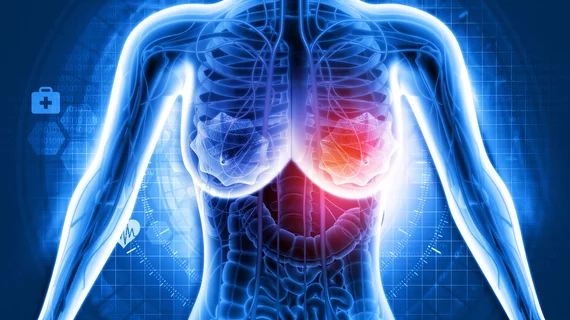Radiology AI firm focused on visualizing dense breast tissue raises $1.7M
An artificial intelligence firm focused on helping radiologists to visualize dense breast tissue has raised $1.7 million in new funding.
Based in New Haven, Connecticut, DeepLook Medical has developed what it claims is the first AI technology platform for assessing suspicious masses in such clinical scenarios. The software overlays directly onto imaging screens with a “seamless and efficient workflow enhancement,” the company said in an announcement.
Connecticut Innovations led the funding round alongside the Tidal River Women's Investor Group, the Connecticut Angel Investor Forum, OKG Capital, Werth Ventures and various others.
“We are thrilled to announce our latest funding which will help us further develop technologies that are critical in helping detect cancer, particularly in dense breast tissue," DeepLook CEO Marissa Fayer said in a statement.
The vendor’s flagship product, DL Precise, uses shape-recognition software to delineate tumor morphology and improve diagnoses. Cleared by the U.S. Food and Drug Administration in 2021, the product is offered through partnerships with Barco, Blackford, Tempus and Radical Imaging. DL Precise is compatible across modalities including mammography, ultrasound, CT and MRI.
Fayer and colleagues said they will use the seed funding to hire new talent, further develop its products, and execute clinical research.

